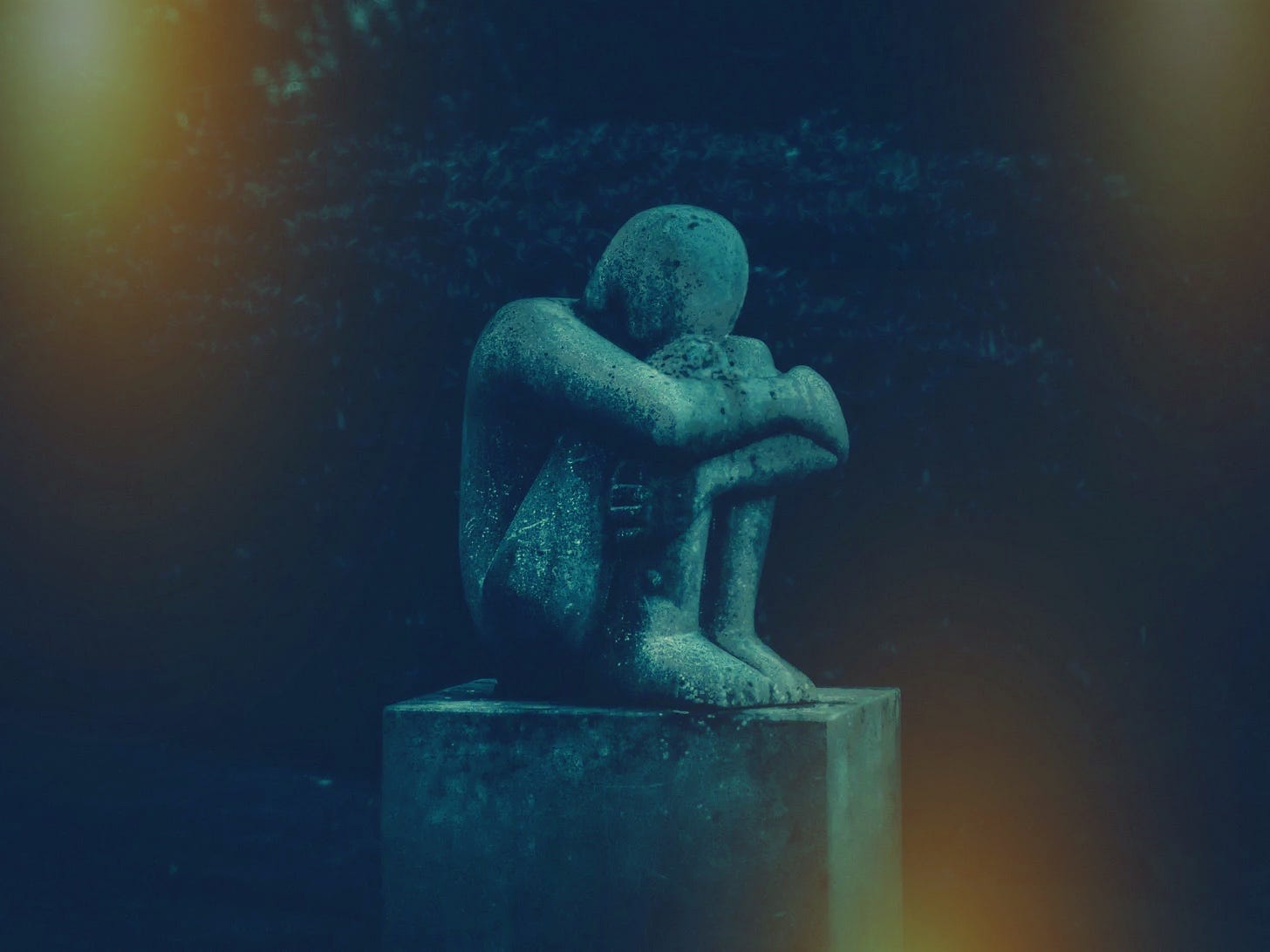In this week's Musing, I'm doing something different by sharing one of the Language of Purpose ideas rather than following my regular format.
As I write my book, I’m reviewing the building blocks of Ikigai. In doing so I realize it has been a while since I’ve shared some of these with you.
The true demarcation of Ikigai is leaving the path of the default and embracing the language and life of purpose.
Here, I lay out the risk of remaining with the default and the opportunity presented by embracing purpose.
Now I invite you to explore the Language of Purpose…
Audio Narration by David Marlow

Study hard, get good grades, get a good job. Then put your head down and keep going, indefinitely. This is what I call the “default path.”
Paul Millerd (The Pathless Path)
Definition.
default (n.)
To deceive, to cheat; to put wrong, to lead astray, cause to be mistaken; be concealed from. A state of privation or deprivation in which things that are essential for human well-being are scarce or lacking.
Risk
There is a default language in life. The language of default is filled with should’s and have to’s and ought to’s and musts.
We are as the definition of default clearly shows, deceived, cheated, and led astray by the default.
It is the use of this language that eventually covers up our Ikigai.
The life we were meant to live, the one we were created for is obscured from view and what is left is a state of deprivation, scarcity, and lack.
Somewhere along the way…we just began shutting down parts of ourselves to be able to function in this default space.
Opportunity🌀
The language of purpose breathes life back into us. It helps us uncover those hidden parts of ourselves long ago forgotten.
Let's look at the opposite, the antonyms of default.
abundance
plenty
enough
respect
strength
sufficiency
satisfaction
When we live from a point of purpose, the whole world of possibilities open up for us.
The life we were meant to live is revealed.

Story
All changes, even the most longed for, have their melancholy; for what we leave behind us is a part of ourselves; we must die to one life before we can enter another.
Anatole France
Giving up the default path is never easy. It is what we are told to do from a young age.
A turning point in my own life was at the peak of my achievements along the default path.
I was a highly compensated executive in a well-known and well-respected company. Beyond my job, career success had translated into opportunities like speaking engagements at global conferences and consulting.
My wife and I were happy together, we owned a home in a superb community and had three healthy kids.
It was at that point I began to question the ‘next’ steps on the default path in part because there were no next steps.
Yet I knew there was more for me to do. More to this life.
That’s when I began my quest for Ikigai.
Living our Ikigai means giving up the known life of default.
Here’s the great thing about leaving the default life, dropping the default language, and embracing purpose.
All of the good things from before remain and all of the things that weren’t serving us fall away.
For example, I still have the same wife and kids. The difference was I became more present and connected to my authentic self. Because of that our relationships grew even closer.
I did walk away from that secure career and had some bumps and bruises along the way. None of which would I trade to go back to the default.
Application.
Living a life of purpose means aligning your actions, values, and desires with a sense of meaning and fulfillment. Here are seven things I did to leave the default behind and embrace the language of purpose.
Self-Reflection: I started with one question that you can ask yourself. What would you do if you were done following the default and started living your best life?
Challenge everything: I questioned beliefs, examined assumptions, looked at habits and behaviors, and started trying new things.
Refined values: While challenging everything, I went deeper in exploring my values, many of which I inherited from others. While the majority remained intact, I took the opportunity to revise and refine some of them. Additionally, I let go of a few that no longer resonated. I came away with a deeper understanding and commitment to what matters to me.
Take Action: I embraced thoughtful risks, took on challenges, and stepped outside my comfort zone. I tried new things, even leaving a safe and secure career to start a business. Not everything worked out well, though learning and growth took place at each point along the way.
Cultivate/Nurture Relationships: I went deeper with people I cared about like my family and friends and strengthened connections with people who supported and inspired me in living into my purpose.
Practice Gratitude: When we live outside of purpose in default it can feel like our life or gifts are wasting away, misused, consumed. It is easy to feel cheated or misled. Instead, we should focus on the blessings that are ahead. Gratitude helps shift your perspective, allowing you to find purpose in everything you do.
Embrace Learning and Growth: By giving up my default career path I was forced to learn new things. This pushed me to uncover talents, skills, capabilities, and passions I didn’t even know I had. It was through those explorations that I uncovered my Ikigai.
🌀Reflection.
When have you felt like your life and gifts were wasting away, misused, or consumed?
That is the default, a language of disintegration and burnout.
When have you felt integrated, sound, whole, and complete?
That is the language of purpose.
What small step could you take today to move past living the default life?
Remember: No matter what has come before, today is a fresh start. 🌱
Let’s make things a little bit better. 🌱








Inspiring description of taking and finding your own path less travelled , David.
I've never considered the meaning of default in this way. But it makes sense. Taking the default path is easier. And unfortunately often the result of what we've been taught.